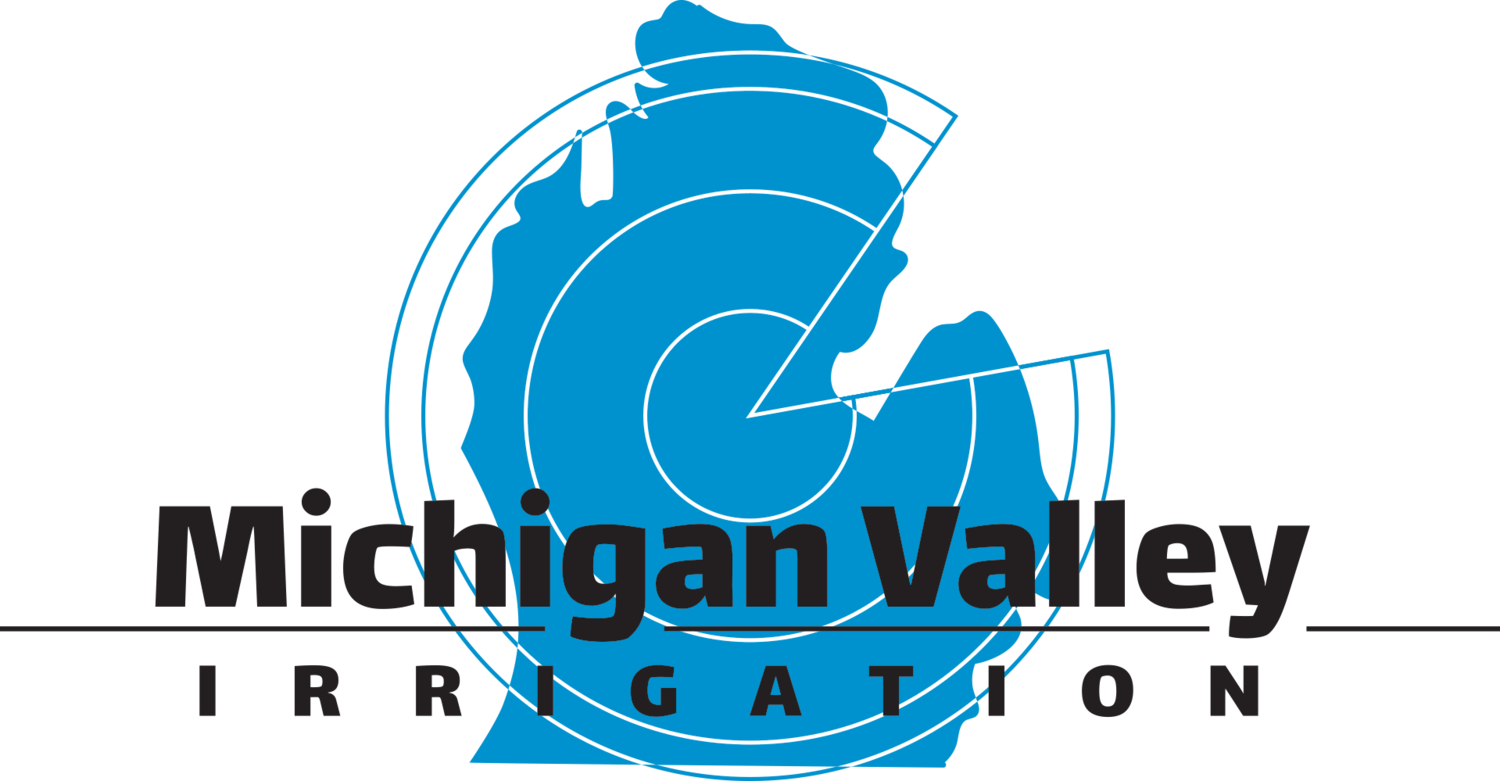Organic Crops & Water Management
Organic crop production has seen significant growth in Michigan in recent years. This appears to be driven by consumer demand for both direct consumption of organic crops as well as livestock that consume organic feed. This trend has encouraged many growers to evaluate both what the consumer elects to purchase and the impact that farming practices have on our soil and water resources. As an irrigation company which partners with farmers, Michigan Valley Irrigation has been involved with many growers adapting to more sustainable farming practices. Available water, which is nearly always the largest input for plants, can have a tremendous impact on yield, quality, and profits. For your benefit, we would like to share some information that we have learned working closely with organic growers.
Soil moisture management at planting is critical for seed germination.
Early and late season frost protection can be accomplished by water applications with a center pivot.
A center pivot can be used to apply water, nutrients and other approved crop protectants, precisely.
Timing water applications with cultivation passes can influence weed germination and improve control.
Precise nutrient and water applications early can quicken crop canopy reducing weed viability.
Strategically applying water as the crop demand occurs can increase yield.
Applying additional water can help your crop compete when weed pressure increases competition.
Utilizing a pivot to spoon feed nutrients closer to uptake reduces potential losses from leaching and runoff.
Reduced trips across the field with tractors and applicators minimizes planting weed seeds and reduces soil compaction.
By minimizing drought impact and increasing water management, you can better project yields, inputs and profits.
Managed water applications can also improve cover crop germination to further reduce weed pressure.
Improved yields on higher value crops may increase profits faster than traditional lower valued crops.
While this is clearly an abbreviated list of factors that may impact your farm, the intention was to highlight some areas that others have found significant. Irrigation, like many practices should be viewed as a management tool. Each tool needs to be evaluated based on the situation in which you intend to use it. We encourage all producers to work with their agronomist and other advisors that are privy to the many variables specific to the operation.
If you are interested in irrigating your organic crops, Michigan Valley Irrigation would be happy to assist in designing and installing a system to accomplish your goals!
About the Author
Pete is the marketing manager for Michigan Valley Irrigation, having joined the company in 2016. He was raised on a dairy farm in western New York and graduated from Cornell University with a B.S. in agricultural economics. His entire working career of over 37 years has been involved in agriculture. A farmer helping farmers. When away from Michigan Valley he operates, Joyful Noise Farm, a small livestock and produce farm and spends time with his family.




